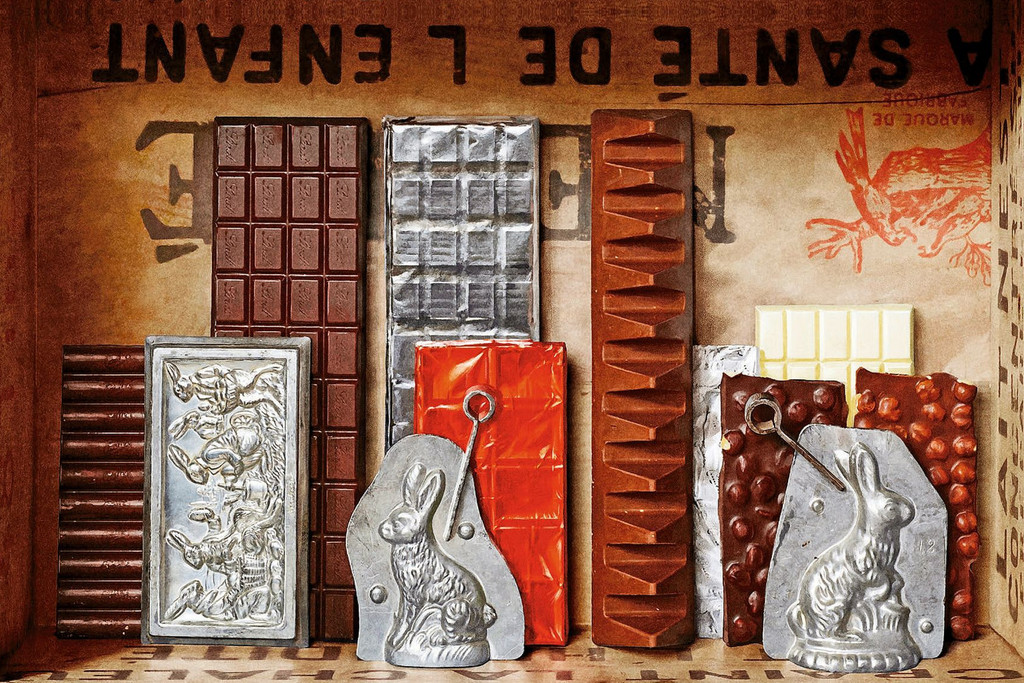The group at the next table are understandably straining to see and their staring is, of course, irritating. We’re sitting in “Bug A Thai” in Basel, one of the first restaurants in Switzerland to serve insects. Along with Pad Thai, fried rice and other Asian dishes, the menu includes an insect burger made with crushed locusts. There is also a skewer kebab where the locusts come whole and fried. Both dishes, the burger and the kebab, are now sitting in front of us on the table. We hesitate for a moment.
The use of mealworms, crickets and locusts in food has been permitted in Switzerland since 1 May. There has since been incredible hype about the creatures. The Swiss media database contains almost 250 articles on the subject from the past six months. TV crews have flown into Switzerland from all over Europe, the USA and Japan to film reports in which excited reporters and passers-by nibble on a mealworm or bite into a cricket.
Roger Greiner, the owner of “Bug A Thai”, has also noticed the interest. He is pleased with how business with the insects is going. Shortly after opening his restaurant he was selling over 20 burgers a day – even though the insect dishes are only served in the evenings. “People are more inclined to try something like this then than during their lunch break,” he explains.
Meatballs on the shelves
The restaurateur firmly believes that lots more people will want to try these creatures. “It’s the future,” remarks Greiner. Supermarkets have been selling insect-based products since the end of August. Coop was the first retailer to enter the market, stocking two products on its shelves – a burger and a kind of meatball, both made with mealworms. Coop actually wanted to introduce these products much earlier but could not source the insects. Domestic production is in its infancy, and the creatures could not be imported from abroad initially due to federal government provisions on food safety. Demand is still currently outstripping supply, especially for mealworms.
The insects are however now on sale thanks to breeders from Belgium, and Coop is pleased with how business has started. While the retailer does not reveal exact figures, spokesperson Andrea Bergmann remarks: “There is great interest in the insect-based products, and sales have been very strong from the outset.” The burgers and meatballs are made by the Swiss company Essento. Its founder Matthias Grawehr also played a significant part in generating all the hype surrounding the edible creatures. The authorisation of the insects is down to the persistent, effective lobbying campaign conducted by an alliance of food pioneers and ecologists.
The political figurehead of this lobby is Isabelle Chevalley, the Green Liberal National Councillor. In several parliamentary motions, the politician from Vaud called upon the Federal Council to permit the use of insects as food. Only Chevalley signed her first motion, but the second one was backed by over 60 National Councillors. Between the two motions, an insect aperitif was held at the Federal Palace, which proved highly successful in attracting media attention. Former CVP President Christophe Darbellay was photographed for the “Blick” newspaper biting into a caramelised cricket. When federal government began revising the comprehensive Federal Act on Foodstuffs shortly afterwards, the Federal Council declared its willingness to examine the authorisation of certain insect species in response to a further motion submitted by Chevalley.
Extremely rich in protein
The arguments put forward by those supporting the use of insects are always the same. These creatures are healthy, tasty and their production is environmentally sustainable because it uses fewer resources than that of conventional meat. These arguments have also clearly been well received by customers and restaurant-goers. The products are geared towards various groups, according to Coop spokesperson Andrea Bergmann: “They range from those curious about experiencing new tastes to environmentally-aware customers and people looking for nutrition that is high in protein.”
An element of curiosity is definitely required when sampling these dishes. Less so the burger, as the insects cannot be seen, but certainly with the skewer-of-locusts dish. We pull off the wings from the rear of the first creature with a degree of trepidation, take a bite and feel a palpable sense of relief. It tastes like fried food, popcorn or pretzels, but there is also a meaty after-taste. The people at the next table are still looking over.
Alan Cassidy is domestic affairs editor at the “Tages-Anzeiger”
Picture Locusts are a new sight on Swiss plates which will take some getting used to. Photo: Keystone











Comments
Comments :